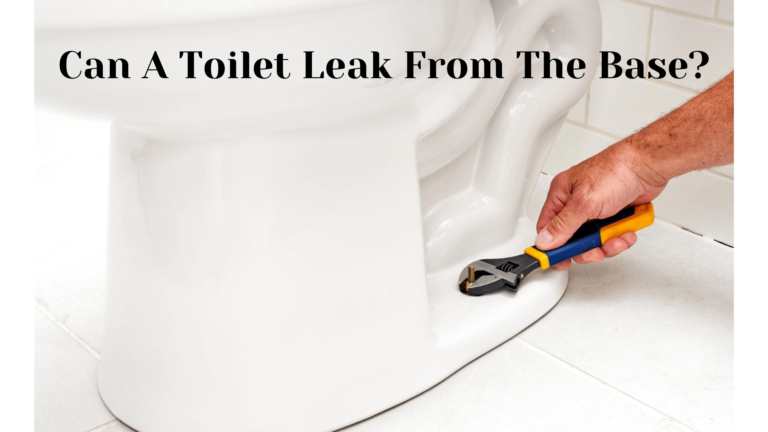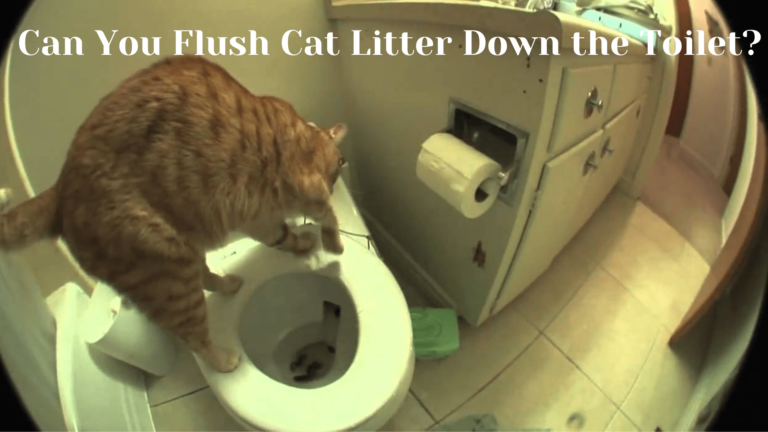The Surprising Effects of Overwatering Your Septic Tank
Are you unknowingly drowning your septic tank in water? You might be surprised to learn that overwatering this vital yet often forgotten component of your home can have some surprising and not-so-pleasant consequences. From foul odors to expensive repairs, the effects of overwatering your septic tank go far beyond a soggy lawn.
In this eye-opening blog post, we’ll dive into what happens when you give your septic system too much love, why it matters, and most importantly, how to avoid the costly pitfalls. Get ready for an enlightening journey beneath the surface as we uncover the surprising effects of overwatering your septic tank – because knowledge truly is power!
Table of Contents
Introduction to septic tanks and their purpose
Septic tanks are a crucial component of the wastewater treatment system for homes and properties not connected to a public sewage system. They are underground structures that collect, treat, and dispose of household wastewater.
Purpose of Septic Tanks
The main purpose of septic tanks is to safely and effectively process and treat wastewater from kitchen sinks, toilets, showers, and laundry facilities. This ensures that harmful bacteria, viruses, and other contaminants are removed before the water is released back into the environment. Septic tanks also help prevent contamination of groundwater and potential health hazards to humans and animals.
How Septic Tanks Work?
Septic tanks operate on a simple principle – they separate solid waste from liquid waste. When wastewater enters the tank through an inlet pipe from the house, the solids (sludge) sink to the bottom while oils and fats (scum) rise to the top. The remaining liquid (effluent) flows out of the tank through an outlet pipe into a drain field where it is further treated by soil absorption.
As more water enters the tank, an equal amount flows out into the drain field. The sludge at the bottom is broken down by naturally occurring bacteria over time while heavy solids settle in lower chambers for periodic removal through pumping.
What happens when you overwater your septic tank?
Overwatering your septic tank can have a negative impact on both the performance and longevity of your system. When too much water enters the septic tank, it can disrupt the natural balance of bacteria and waste decomposition, leading to various issues. In this section, we will dive deeper into what exactly happens when you overwater your septic tank.
- Reduced Bacterial Activity: One of the most significant impacts of overwatering is the reduction in bacterial activity within the septic tank. Septic tanks rely on a delicate balance of beneficial bacteria to break down solid waste and maintain a healthy ecosystem. Excess water entering the tank dilutes this bacterial balance, making it difficult for them to do their job efficiently. As a result, solid waste does not get broken down properly, leading to clogs and backups in your plumbing system.
- Increased Solid Buildup: As mentioned earlier, when there isn’t enough space for wastewater to flow freely in the septic tank due to overwatering, solid waste gets pushed toward the outlet pipe without being adequately broken down. This buildup can lead to blockages in pipes and drainage fields as well as damage to other components such as pumps or filters.
- Overwhelmed Drainfield: The drain field is an essential part of any septic system that helps filter out impurities from wastewater before it is released back into the environment. However, when excessive amounts of water enter the tank simultaneously, it can cause hydraulic overload and oversaturate the drain field. This can result in sewage backup and strong odors in your yard. In extreme cases, it can even cause the drainfield to fail, requiring expensive repairs or replacements.
- Increased Maintenance and Repair Costs: Overwatering your septic tank can increase maintenance and repair costs. As the system becomes overwhelmed and cannot function properly, you may need to have it pumped more frequently, which can be costly. Additionally, if overwatering causes damage to other components of the system, such as pumps or filters, you will incur additional expenses for repairs or replacements.
- Shortened Lifespan of Your Septic System: Constantly overwatering your septic tank can significantly shorten its lifespan. When a septic system is not functioning correctly, it puts extra strain on its components, causing them to wear out faster. Eventually, this could lead to the system’s complete failure, requiring a costly replacement.
Signs of an Overwatered Septic Tank
An overwatered septic tank is a serious issue that can lead to costly repairs and potential health hazards. It occurs when there is too much water entering the septic system, overwhelming the natural bacteria and processes responsible for breaking down waste. This causes the tank to become inundated with excess water, leading to backups, clogs, and other problems.
Here are some common signs that your septic tank may be experiencing an overload of water.
- Sluggish Drains: The first sign of an overwatered septic tank is often sluggish drains throughout your home. As water enters the system faster than it can handle, it can cause blockages in the pipes and prevent proper drainage. You may notice slow or gurgling drains in sinks, toilets, and showers.
- Foul Odors: Another telltale sign of an overwatered septic tank is a foul odor from your drains or yard. When too much water is in the tank, it cannot properly decompose solid waste and instead releases sulfides into the air, resulting in a strong sewage smell.
- Standing Water: If you notice standing water around your drain field or near your septic tank, this could also be a sign of overwatering. The excess water has nowhere else to go but out onto your property, creating pooling or soggy areas.
- Slow Flushing Toilets: When flushing your toilet, the water should flow away quickly and easily. If you notice that your toilet is taking longer to flush or you have to flush multiple times to get rid of waste, there could be an issue with your septic tank.
- Patches of Lush Grass: Although it may seem counterintuitive, an overwatered septic tank can actually lead to patches of lush green grass in your yard. This is because the excess water acts as a fertilizer, promoting the growth of grass and other plants.
- Backups or Overflows: The final and most serious sign of an overwatered septic tank is when sewage begins backing up into your home or overflowing from your tank onto your property. This can cause significant damage to your home and poses a health hazard, so it’s important to address the issue immediately.
Consequences of overwatering Your Septic Tank
Overwatering your septic tank may seem like a harmless mistake, but it can actually have serious consequences for both your wallet and the environment.
Here are some of the potential effects of overwatering that you need to be aware of:
- Increased Water Bills: One of the first consequences you may notice from overwatering your septic tank is an increase in your water bills. This is because the excess water flowing into your tank will need to be pumped out more frequently, leading to higher pumping costs.
- Damage to Your Septic System: Overwatering puts a lot of stress on your septic system, causing it to work harder than necessary. This can lead to accelerated wear and tear on components such as pumps and pipes, resulting in costly repairs or even complete system failure.
- Foul Odors: Excess water can create an imbalance in the septic tank’s natural ecosystem, leading to an accumulation of solid waste and anaerobic bacteria. This not only causes foul odors but also poses a health risk for anyone living near or using your septic system.
- Contamination of Groundwater: When there is too much water entering the septic tank, it can overflow into nearby soil and water sources such as wells or rivers. This contaminated water can contain harmful pathogens that pose a threat to human and animal health.
- Environmental Impact: In addition to groundwater contamination, overwatering also contributes to nutrient pollution in lakes and streams. The excess nutrients in wastewater, such as nitrogen and phosphorus, can lead to the growth of harmful algae blooms and other aquatic plants, harming the ecosystem.
- Legal Consequences: Many local and state governments have regulations in place dictating how much water homeowners are allowed to use for their septic systems. If you exceed these limits, you could face fines or legal action from the authorities.
How to prevent and fix an overwatered septic tank?
If you are a homeowner with a septic system, one of the most important things to keep in mind is that your septic tank should never be overwatered. Overwatering can lead to serious damage and costly repairs.
- Regular Maintenance: The first step in preventing an overwatered septic tank is regular maintenance. Be sure to have your septic system inspected and pumped every three to five years by a licensed professional. This will help ensure that your system is functioning properly and not at risk of being overloaded with water.
- Conserve Water: One of the main causes of an overwatered septic tank is using too much water in your household. It’s crucial to conserve water usage, especially during heavy rainfalls or flood situations where the ground may already be saturated. Fix any leaky faucets or toilets promptly, as these small drips add up and can significantly increase your water usage.
- Avoid Flushing Non-Biodegradable Items: It’s essential to educate everyone in your household about what items can be flushed down the toilet or poured down the drain. Non-biodegradable items such as diapers, feminine products, paper towels, or wipes should never enter your septic system as they do not break down naturally and can clog pipes, leading to an overfilled septic tank.
- Septage Disposal System: Consider installing a septage disposal system in your yard. This system is designed to collect and store excess septic waste, preventing it from overloading your septic tank. Some municipalities may even require these systems for households with high water usage.
- Redirect Downspouts and Gutters: Another way to prevent an overwatered septic tank is by redirecting your downspouts and gutters away from your drain field. This will help divert excess water away from the area surrounding your septic tank, reducing the risk of over-saturation.
- Fix Drainage Issues: If you have any drainage issues in your yard, such as standing water or soggy areas, it’s crucial to address these problems promptly. A buildup of excess water can lead to an overwatered septic tank and cause damage to your system.
- Seek Professional Help: If you suspect that your septic tank may be overwatered or experiencing any other issues, it’s crucial to seek professional help immediately. A licensed plumber or septic system technician will have the expertise and equipment to diagnose and fix any problems with your system.
The importance of proper maintenance for septic tanks
The proper maintenance of septic tanks is crucial for the health and longevity of your entire septic system. Neglecting to maintain this vital component can lead to costly repairs, potential health hazards, and damage to the environment. In this section, we will discuss the key reasons why it is important to properly maintain your septic tank.
- Avoid Costly Repairs: Septic tanks are designed to collect and break down solid waste from your household into liquid form, which then flows out into the drain field for further treatment. However, when a septic tank is not properly maintained, solid waste can build up in the tank, causing it to clog and back up. This can result in costly repairs or even complete replacement of your septic system – an expense that could have been avoided with regular maintenance.
- Prevent Health Hazards: A poorly maintained septic tank can become a breeding ground for harmful bacteria and pathogens that pose a threat to human health. These microorganisms can contaminate groundwater and cause illnesses if they come in contact with humans through improper disposal methods or breaches in the tank’s structure. Regular pumping of the septic tank removes these hazardous substances before they have a chance to harm anyone.
- Protect Your Property’s Value: One of the often overlooked effects of neglecting proper maintenance on your septic tank is its impact on property value. A malfunctioning or failed septic system will significantly decrease your property’s value if you plan on selling it in the future. Regular maintenance and inspections will ensure that your septic system is in good working condition, giving potential buyers peace of mind and increasing the value of your property.
- Preserve the Environment: Septic tanks play a crucial role in treating and disposing of household wastewater before it enters the environment. A well-maintained septic tank will effectively break down solids and filter out contaminants, allowing for safe and environmentally friendly disposal of treated water. Neglecting to maintain your septic tank can lead to contamination of soil, groundwater, and nearby bodies of water, posing a threat to the environment and wildlife.
- Ensure Proper Functionality: The functionality of your entire septic system depends on the health of your septic tank. If the tank is not properly maintained, its ability to break down solid waste and treat wastewater will be compromised, leading to backups, clogs, or other issues with the system. Regular maintenance ensures that all components are operating as intended and helps catch any potential problems early on before they escalate into larger issues.
Alternative methods for reducing water usage with a septic system
Alternative methods for reducing water usage with a septic system are not only beneficial for the environment but can also save you money on water bills and reduce maintenance costs for your septic tank. Here are some effective ways to reduce water usage with a septic system:
- Install low-flow fixtures: One of the most effective ways to reduce water usage is by installing low-flow fixtures such as faucets, showerheads, and toilets. These fixtures use less water per flush or use aerators to decrease the flow of water while still maintaining good pressure. This can result in significant savings of hundreds of gallons of water per year.
- Fix leaks promptly: A leaky toilet or faucet can waste a surprising amount of water, which puts unnecessary strain on your septic system. Make sure to fix any leaks immediately to avoid excessive flushing and overloading your tank.
- Upgrade appliances: Older dishwashers and washing machines tend to use more water compared to newer energy-efficient models. Consider upgrading major household appliances with Energy Star-certified ones that have been designed specifically for high efficiency and reduced water consumption.
- Spread out laundry loads: Avoid doing all your laundry in one day, as this can put excessive pressure on your septic tank’s ability to treat wastewater efficiently. Instead, spread out laundry loads throughout the week so that it does not overload the system at once.
- Incorporate landscaping techniques: Landscaping plays a big role in how much excess water gets into your drain field from rainwater and irrigation. Consider incorporating rain gardens, porous pavement, or redirecting downspouts to reduce the amount of water that enters your septic system.
- Use household cleaners sparingly: Harsh chemical cleaners can kill the beneficial bacteria in your septic tank, disrupting its ability to break down solids efficiently. Consider using natural cleaning products or using vinegar and baking soda.
- Avoid long showers: Showers are one of the biggest sources of water usage in households. Consider taking shorter showers or installing a low-flow showerhead to reduce the amount of water used.
- Be mindful of what you flush: Flushing non-biodegradable items such as wet wipes, feminine hygiene products, and even some types of toilet paper can clog up your septic system and cause backups. Only flush biodegradable materials and make sure everyone in the household is aware of what should not be flushed.
Conclusion and Recommendations for Keeping Your Septic Tank Healthy
It is important to understand the potential consequences of overwatering your septic tank. From causing damage to the system and potentially harmful environmental impacts, there are many reasons why properly managing water usage in your household is crucial.
To ensure your septic tank remains healthy and functioning efficiently, here are some recommendations:
- Regular Maintenance: It is recommended to have your septic tank inspected and pumped every 3-5 years by a professional. This will help prevent buildup and potential clogs that can lead to overwatering.
- Conserve Water: As we discussed earlier, too much water entering the septic tank can disrupt the decomposition process and strain the system. To conserve water, try shorter showers, fixing leaky faucets or toilets, and using high-efficiency appliances.
- Be Mindful of What You Flush: Only human waste and toilet paper should be flushed down the toilet. Avoid flushing items like wipes (even those labeled as “flushable”), feminine hygiene products, medications, or any other non-biodegradable materials that can cause clogs in the septic system.
- Use Natural Bacterial Additives: Adding natural bacteria supplements to your septic system can help improve its function by breaking down solid waste faster. These additives are safe for both your household plumbing and the environment.
- Plant Wisely: If you have a drain field on your property where processed wastewater is distributed for further treatment, avoid planting trees or shrubs with deep roots. These roots can damage drain field pipes, causing leaks and overwatering.
- Educate Your Household: Make sure everyone in your household is aware of the do’s and don’ts of septic tank maintenance. Educate them on proper water usage habits and what can and cannot be flushed down the toilet.




